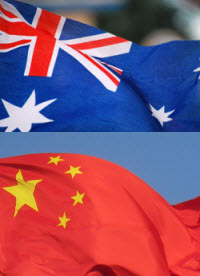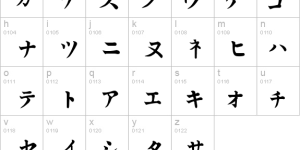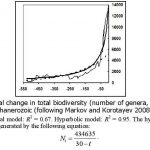My Story ~ 15. Never Say “Give up”
No comments yet “Only after I became part the community did I get to know that there was no cultural conflict.”
“Only after I became part the community did I get to know that there was no cultural conflict.”
I was born in a small fishing village with sea outside my door and we can well say that it’s “facing the sea with spring flowers blossoming”. The family home was built on a hill, there was no flatland at all. Though people lived off the local resources, I had never gone fishing for a living but I left home for schooling and for work.
My father was a fisherman and he had a unique life style just like other people who lived beside the sea. Almost all the men in our village were fishermen and they all went fishing in the open water. The fishing area in Fujian is not part of the main four fishing grounds, and a lot of fishermen went north to Mindong Region. As I remember, my father went there when I was six and though it was after the opening-up policy was introduced; there was still no advanced technology for forecasting the weather. They encountered a huge typhoon and the boat overturned with seven people abroad, the entire crews were lost.
Two or three years before I went abroad, I couldn’t understand Chinese who had made the decision to leave, and frankly speaking, I didn’t like them. Well, I had my own experience which led to this attitude. A relative of mine went to Taiwan nineteen years ago and when home visiting was allowed he came back. He found out that my father was dead and my mom and I were living a poor life. Our living conditions could be seen by the condition of our house and our pathetic furniture. He stayed for less than an hour, went away and never came back. He did come back to China later, but not to our hometown. It’s said that his son works in the development zone for Taiwan-based companies in Guangdong. I was just a teenager and I knew those overseas Chinese were rich and they really looked down upon us. They wore a big golden necklace and their arrogance made me feel at unease and unacceptable. A gentleman makes money in the right way; I don’t think much of money but value the spirit of dedication. A life of being wealthy without doing good things means nothing at all.
I graduated from Xiamen Normal school. I’m a WPS and majored in Music. It was in the 1980s, the Cultural Revolution was behind us and the college entrance examination was reinstated. I was allocated to a middle school in my hometown village and worked as a teacher for several years. Well, actually it was my old school and it needed a teacher, so I went there. Later after several years, I transferred to the Education Bureau to be in charge of the music education in the town. I was transferred again after four years to be in charge of administration and my turning point came at that time. In my work unit, the key point of being taken seriously was not your ability and hard-work, but your good relationship with your boss. Maybe this problem still exists in China and after I was transferred to administration I got to know that politics and rights were involved too. The situation would be more complex if rights were involved. You had to consider the relationship between the boss and staff. I was young and all I wanted was to do a good job and serve society and teachers. Well, it doesn’t mean it is all right if you think so and do so and being jealous is a weakness of all people.
I started early and knocked off late and really did a great job. But the status of such a life was really boring and you always felt that life should be more meaningful than this. I like music but my work had nothing to do with music. Besides, my rights were limited with no responsibility and they just didn’t trust me. It’s pathetic not to be trusted. If you have no confidence in yourself, how can you gain recognition from others? There is an old saying:” every man is for himself and the devil takes the hindmost”. It’s terrible to live an empty life with no fame and gain, I just can’t understand it. It’s impossible to live for no reason. I live to do things and for my consciousness. I work for you and get money in return, besides, more work will help me to improve my ability or at least I can bring it into full play and gain trust and recognition from others. No one likes to be an idiot; this is what we call ambition.
I thought about applying for a transfer at first but everywhere was the same. It was at that time that the open door policy of China arrived and we could choose to go to Australia for further study. I got information from a friend in Shanghai and checked all the information about studying in Australia. After borrowing 20 thousand yuan from eleven friends in 1988, I applied for the opportunity to study at Melbourne University at my own expense.
My first impression of Melbourne was really an eye-opener.
After I got off the plane and boarded a bus, all I could see were green with wide roads, red tiles and white walls. What a beautiful western country! When I went out, there was carpet on the trains, carpet in every house and a telephone for every family. And there were carpets in schools too. Well, it’s green land outside and carpet inside the house. I made a small summary, some were quite surprising: a train ticket enabled enable you to ride on all trains. I wrote a letter to my family and told them that I could buy a ticket with which I can travel on all trains. The communism that we had worked so hard for was not like that. Shops in the downtown area were all magnificently decorated with all sorts of goods, the waiters were blonde girls, sweet and comfortable. Waiters were nice and I wrote to my family that it was really a good place. After studying English for one whole semester and another six months, I applied to a commercial school to study computer technology. It was a hard life while studying and working at the same time because tuition and living expense were high.
I remember that I had 50 dollars with me when I arrived in Australia. Banks in China only allowed you to exchange 50 dollars and 100 Hong Kong dollars and all my money was borrowed from a friend. Though I had learned English in advance, the moment I arrived at the airport, I couldn’t say anything. The taxi driver didn’t understand me even if I talked with him for a long time, he finally understood where I wanted to go after I showed him my school document. I didn’t know anyone when I arrived at school and put my luggage in the school office. It was Friday afternoon and I came across a classmate from Guangdong who had a relative here. So I asked him where I could find a cheap hotel and he told me to try Chinatown. After I got there, the Baokang bookshop owner told me that the cheapest hotel was on the seaside, 30 dollars for one night. But I found a cheaper place, only 20 or even 10 dollars. Finally I found a hotel established by the YMCA where I stayed for five nights until one week after school commenced.
The university compassionate management policy was greatly admired. Foreign students could study here with part of the living expense paid upfront and the remaining to be paid later. I stayed there for three nights. I felt hungry so I bought a bowl of noodle which cost me 5 dollars. Well, 5 dollars could only support me for 4 meals so I bought a loaf of bread. It would last a long time with slices separated and I only drank water. There was hot water from the tap which I had never seen before. Though it was a beautiful place, living here was just like being in hell. I felt as though I was falling apart with no home to go and didn’t believe I could survive.
Walking down the street where I lived and you could see the sea which reminded me of my hometown. The feeling of helpless, of drifting and strangeness made me feel sad. Who knows what would come next? The idea of going abroad was my decision so I shouldn’t regret it. Well, my class origin and life experience supported me and I never gave up. Later I knew that many students went back to China and some even shouted and cried while on the phone. Men don’t easily shed tears and what is this bitter reaction for? As least I still had money to buy food and a school to study in. Though there were no relatives by my side, I had a different feeling. To me, this was nothing, I would overcome these difficulties.
I had gone through a most painful process during this time, I was quite confused. Going abroad is not like what I thought it would be. Attendance at class mattered if you wanted to survive and to retain your visa. I needed money but as students, we couldn’t work full time. Part-time work was not allowed to exceed 20 hours a week and all the Chinese restaurants and hotels were full of Chinese students. Some worked through the whole night and students would hide this from each other in case school found out about your job and it would be taken by others. I understood this, after all, we had to protect ourselves but who would protect you? Well, this comes back to my previous saying:” Every man for himself and the devil takes the hindmost”. All the students were protecting their attendance, their visa and trying to survive in the new environment.
I traveled by train all over Melbourne and asked every Chinese restaurant for work. I came here in September, but I didn’t receive any work calls until Christmas when a wood factory wanted me to work there. It was my first job. I worked there after class and also on weekends and I earned hundreds of dollars a week. The state of being unemployed for three months was swept away. I heard that some students paid off their debts in one semester, I didn’t because I had to apply to another school for my visa. All my savings were paid for the tuition. But my situation was getting better and better with more friends and more opportunities and I found another part-time job. I was paid 200 dollars or so every week and also got a job in a restaurant at weekends. So my financial problems were over and I was able to send some money to my family in China. I ate potatoes to save money, both at school and at work. It’s not too bad to eat a potato after you peel it and then drink plenty of water. There is a saying that “The car will find its way round the hill when it gets there”. Our Chinese culture has been a spiritual pillar for me. I’m quite happy for my classmates who are optimistic and have got jobs to survive. I enjoyed the hard work, and my attendance was unaffected, I earned 600 dollars a week and my roommates all admired me. I was earning double their salary.
I stayed in Australia just like the others. There was nothing special in the early days of my study expect one thing, which influenced me a lot. My daughter came to Australia when she was in grade one. As parents we thought it was necessary for her not to forget her mother language. We wanted to teach her ourselves but I had to work over ten hours a day, the morning at one place and the afternoon at another. It would be late at night when I finally came home, so the only time would be the weekend. I read about a focus language school in the newspaper. After calling, I knew it was quite famous in Melbourne, a Chinese school with the largest number of students and teachers in the world. There were over five thousand students and ten schools with over two hundred teachers. So my daughter enrolled. There were only six students at first and the teacher was not quite confident about having so few students. I told him not to worry about it and I could help. With so many Chinese friends I would find more students for the class.
I also worked for free for him on weekends. They had established schools and magazines but it seemed as if there was an invisible wall between us. I had worked in school before in China and knew the hardships in education so I was willing to help them. I worked for free for one year, teaching students to sing and also organized a small choir for the students. After one year, they employed me as a formal teacher and I worked there for another year. I became a good friend with the headmaster and they wanted to cooperate with me because the school was expanding with a printing plant being built. I told them I thought it was a good idea, I had experience working in a factory, so I helped set up the new business. We printed business cards, letters, envelopes and advertisements. I had bought a house then, so I used my garage and bought a second-hand computer. Twenty-one years later, we are still doing this. Of course we have moved out of the garage.
Through my business connections, I got to know more Chinese people and established a hometown association with Fujian. I went there during the leadership transition period. We helped each other to develop the association. We got together in our spare time so there were more and more people in the association. I also participated in community activities in my spare time and gradually they wanted to make me leader. So I had the chance to make contact with the consulate. I spent a lot of time on community activities and learnt that there was actually no conflict between Chinese and Australian culture. We were born in China, were married there, so we have the same feeling towards our hometown and mother country. Many delegations come and say we are patriotic. I will tell them:” you will never miss home unless you leave it and you will never be patriotic until you leave your country.” In other words, if half of your life is spent in China you will never forget it.
Australia is really a good place. Government and public policy treat people equally and the relationship is quite easy. No intrigue, no bad words behind your back and no one threaten you, this is what I want. Whatever you want to do, you are allowed to do as long as you don’t break the law. The whole environment, geography and living conditions are more relaxed here. Having lived here for more than twenty years, I can feel the special way in which Australia can inspire a child’s intelligence and creativity and I can give up living in China because of these advantages.
There is nothing difficult for me except language. For me, I have never received a formal education either in China or in Australia so I have little knowledge about Australian culture. There’s a song sung by Zhang Mingmin called My Chinese Heart. A friend of mine posted an article in The Focus named My Chinese Stomach. It’s a story telling her experience that she can only eat Chinese porridge or soup without cheese when she’s sick. Well, you can do nothing to change your Chinese stomach. I like this country which now advocates multi-culturalism and encourages common development of all nations and cultures. It’s a great pioneering endeavour.
I will attribute all I have to that headmaster who pulled me out of my difficulties and changed my life from then on. It was a turning point not to work for other people. He was a good teacher and helpful friend and I wrote a poem for him called “Headmaster, Teacher and Brother” on his sixtieth birthday to express my gratitude. It was hard for him to favor me among so many teachers and parents and we have been cooperating since 1996. Business opened my mind and gave me the chance to get to know more people.
Someone asked me:“Are you an Australian?”It’s like that we are Australian as the first immigration, including people of different nationalities such as Europe. But about 90% of the second generation born here will think they are Australian. They have no sense of home. But we have gone through bitterness and sweet life and this kind of feeling is unforgettable. We will never be against or abandon it unless it’s an obstacle for someone.
We have communication with both Chinese and Australian society. Businessmen like me will go out for dinner with foreigners but we have little communication with each other. Sometimes, we invite councillors and governors including the premier to special events and activities but there is still little communication and friendship. We all focus on our love of China so our life style remains Chinese. Besides, we are just too busy to spend time with foreigners. Well in turn, even if you work with a foreigner, he is just your employer and you have different cultural background, so you will never be as open to him as to your Chinese friends. We are polite and get together a little on holidays. I will chat a little with my neighbours and will also invite them to visit my house. But they are sometimes unwilling to come to your celebrations. I have several friends whose husbands are foreigners, it’s easier for them. They will gradually accept Chinese culture because of their Chinese wife.
We strengthen our hometown association to make us more powerful and I can also feel close toward all people from the same place. We share information and help each other and there’s a sense of home between us. Nothing is difficult with our compatriots’ support. We speak Fuzhou dialect or Hokkien. This sense of family brings us together and by contacting people, we are actually maintaining contact with our nationality and hometown. If friends in China need us, we will help by donating and investing money. As a man about to retire, I will do volunteer work for the community and I will try to follow my interests. I’ll prolong my life in this free land.
You May Also Like
Comments
Leave a Reply









